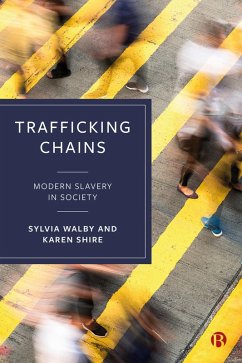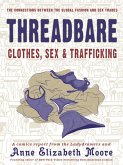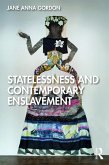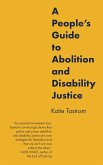Available open access digitally under CC-BY-NC-ND license. This book offers a theory of trafficking and modern slavery with implications for policy. Despite economic development, modern slavery persists all around the world. The issue is not only one of crime but the regulation of the economy, better welfare, and social protections. Going beyond polarized debates on the sex trade, an original empirical analysis shows the importance of profit-taking. Although individual experience matters, the root causes lie in intersecting regimes of inequality of gender regimes, capitalism, and the legacies of colonialism. This book shows the importance of coercion and the societal complexities that perpetuate modern slavery.
Dieser Download kann aus rechtlichen Gründen nur mit Rechnungsadresse in A, D ausgeliefert werden.









